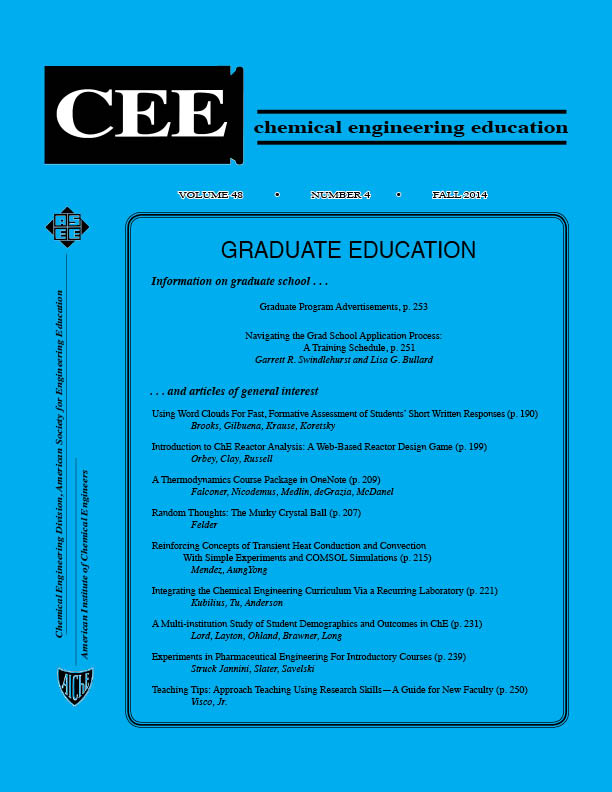Using Word Clouds for Fast, Formative Assessment of Students’ Short Written Responses
Abstract
Active learning in class helps students develop deeper understanding of chemical engineering principles. While the use of multiple-choice ConcepTests is clearly effective, we advocate for including student writing in learning activities as well. In this article, we demonstrate that word clouds can provide a quick analytical technique to assess student writing. We provide two examples: students’ in-class explanations of their answer choice to multiple choice ConcepTests, and student responses to “muddiest point” reflection exercises.


